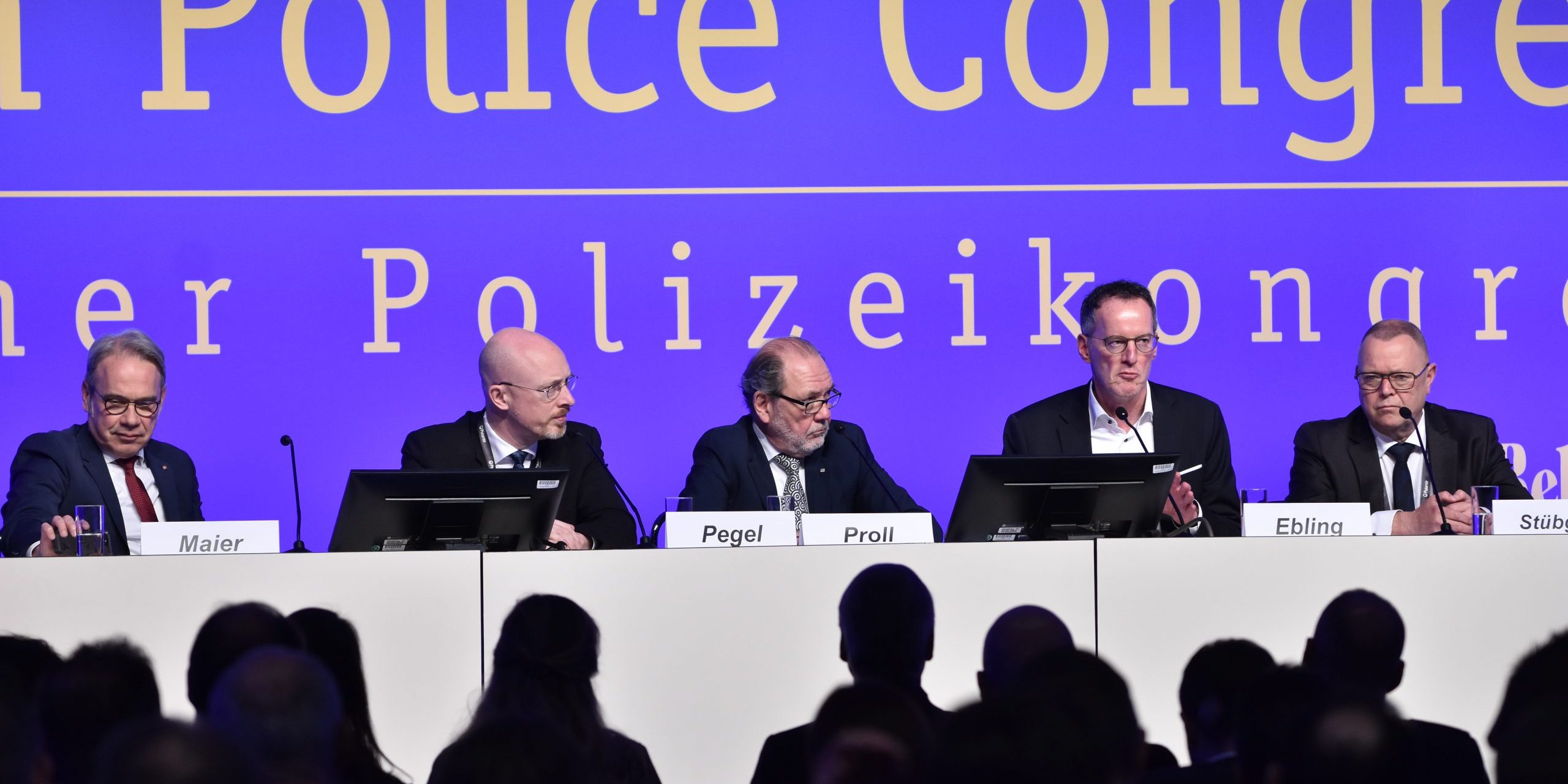(BS) Internal security in Germany has long since ceased to depend on parameters within the country. Wars and crises such as those in Ukraine and the Middle East, increasing migration pressure and the growing threat of Islamist terrorism are influencing factors of great importance. The German security authorities must take these key influencing factors into account in their security concepts.
This summer, for example, the European Championship is a major event on the programme that threatens to be a target for terrorism. The terrorist attack in the Crocus City Hall near Moscow a month ago was a further reminder of this. The terrorist attacks that took place in Paris in November 2015 alongside the international match between France and Germany will also be fresh in everyone’s mind.
At the 27th European Police Congress in Berlin, those responsible for security preparations provided information on how to counter the current threat situation. In his keynote speech, tournament director Philipp Lahm began by thanking all the security authorities involved for their work. He expressed his confidence that they would ensure that the tournament would run safely and peacefully. People should be able to come together again after the pandemic and enjoy their freedom.
European Championships under tense security situation
Timo Seibert, Head of Security and Medicine at EURO 2024, confirmed that the current security situation is by no means relaxed. A total of over 40 million euros is being invested in security in his area of responsibility. There is an intensive and close dialogue with the host cities. One of these is Leipzig, whose overall project manager for EURO 2024, Stefan Schedler, was delighted with the response from people to the voluntary tasks. Leipzig had received over 8,000 applications for the volunteer positions. In total, there were over 46,000 applications for around 16,000 positions. However, Timo Seibert emphasised that these were service positions. The volunteers themselves would not be taking on any security tasks. Instead, local structures that have been tried and tested in league operations will be utilised. However, with 800 to 1,300 stewards, the personnel costs for the European Championships are slightly higher. 500-700 managers would have undergone an additional qualification module.
Dirk Hulverscheidt, head of the police project group for the development of the police framework concept for UEFA EURO 2024, emphasised that the police operation should be both open and friendly, but also characterised by consistent intervention. The International Police Cooperation Centre (IPCC) in Neuss will provide a nationwide picture of the situation around the clock for the duration of the tournament and coordinate cooperation with foreign police forces. In doing so, it will utilise the structures of the National Football Information Point (NFIP). The IPCC is made up of around 350 officers, and there are just as many throughout Germany. However, the existing structures for the exchange of information on terrorism will remain in place. The IPCC serves as an additional centre for the national and international exchange of information, including the relevant hooligan scenes.
Fight against criminal networks
The importance of international cooperation between European security authorities beyond the European Championship was recently emphasised by the Europol study on criminal networks. They unite over 25,000 members in the 821 most dangerous gangs in Europe. Jürgen Ebner, Deputy Executive Director of Europol, described the agile, globally active, violent, financially powerful and corrupt organisations as a major challenge for European security. In this regard, he emphasised the importance of the Secure Information Exchange Network Application (SIENA), which is used to exchange 1.8 million pieces of data every year.
Oliver Huth, Head of the Investigation Commission of the State Criminal Police Office of North Rhine-Westphalia, also described EUROPOL and EUROJUST as indispensable in the fight against international crime. The fight against the ‘Ndrangheta in Germany can only be successful through close co-operation with Italian colleagues, he said. He cited the successful Eureka operation, which led to 106 arrests in May last year, as an example. It is also extremely important to be able to describe the norms and value systems of the ‘Ndrangheta and make them justiciable.
Controlling migration together
After eight years, European cooperation on migration policy has finally been given a common basis with the European Parliament’s approval of the migration and asylum package. ‘The pact is a basis that we have now found. From a European perspective, it is the entry into a common asylum and migration management system that did not exist before,’ said Lena Düpont, Member of the European Parliament for the EPP/CDU. Isabell Schmitt-Falckenberg, Head of the Federal Police Department at the Federal Ministry of the Interior (BMI), emphasised that there was no ‘all-encompassing’ solution. Different aspects, such as cooperation with countries of origin and transit or preliminary investigations directly at the borders, would be addressed by the new migration and asylum package. The two-year implementation phase will be essential for future developments in Europe.
Dr Michael Spindelegger, Director General of the International Centre for Migration Policy Development, predicted that the number of asylum seekers would continue to rise. The EU member states must gain control over migration flows, he said. Europe needs legal migration due to the demographic situation, but this must be well organised. In order to counter irregular migration, partnerships must be found with the countries of origin.
Hans Leijtens, Executive Director of Frontex, emphasised the importance of border controls to prevent illegal entry, but also to combat cross-border crime. The main routes for refugee flows are currently in the western and central Mediterranean. He emphasised that smugglers, who exposed desperate people to the enormous dangers of crossing the Mediterranean, were one of the main problems. They were deliberately sending masses of boats towards Europe, as border officials could intercept fewer boats in this way and this approach produced images that showed the suffering of the people fleeing.
Next year’s European Police Congress will take place from 20 to 21 May. Click here to register.







